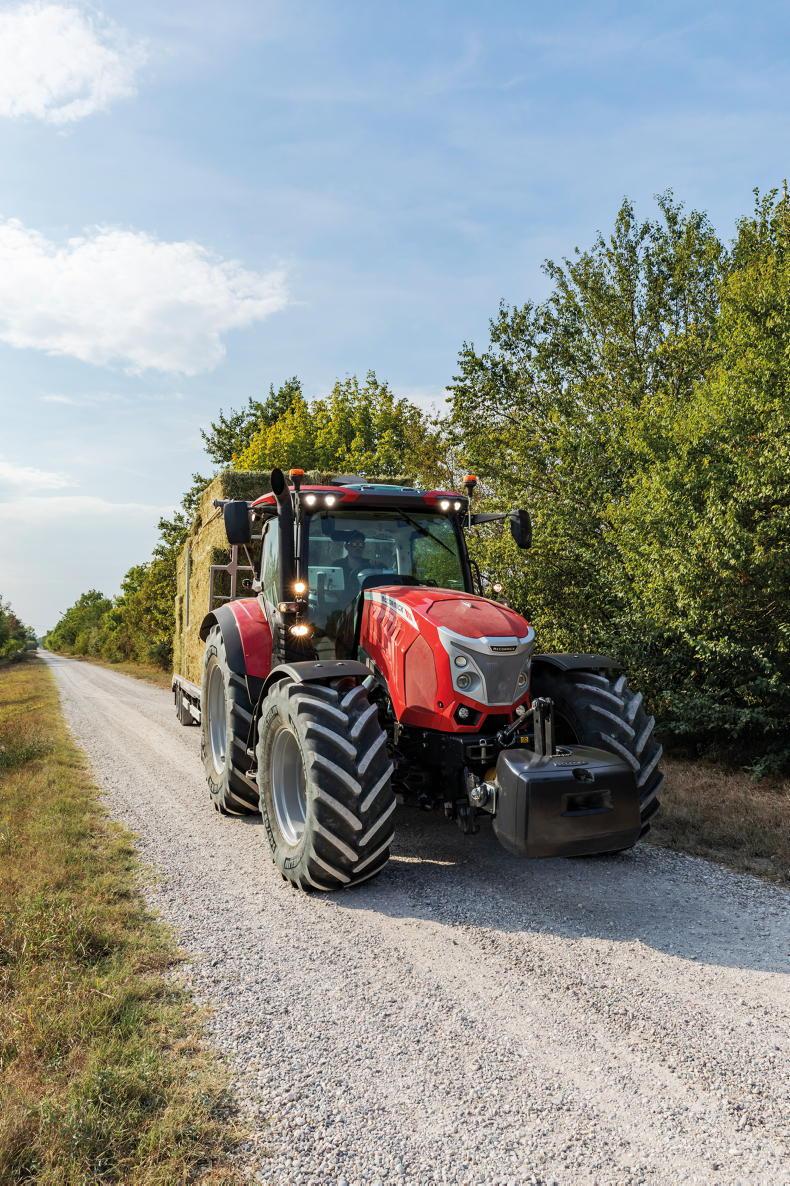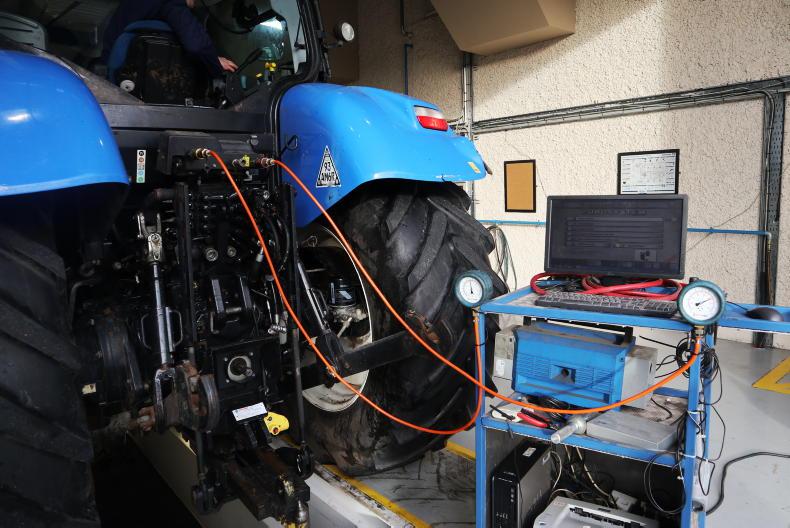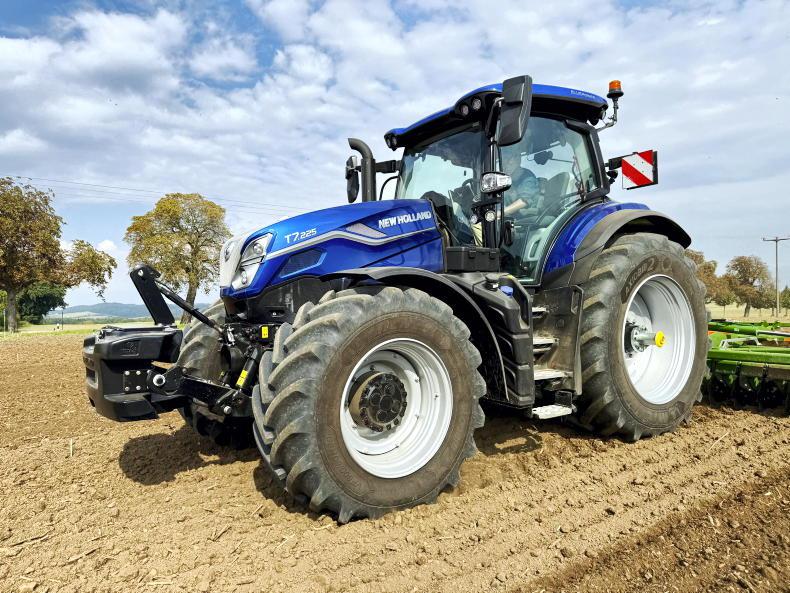The restrictions on tractor licences for non-agricultural related activities has been reversed. Last week, it was established that there had been substantial changes made by the Road Safety Authority (RSA) without any stakeholder consultation surrounding the use of the category W licence for non-agricultural activities.
This came to light when drivers on construction sites were told that W licences only covered drivers of tractors and other work-related vehicles for agricultural purposes and that a CE or CE1 licence was required instead for non-agricultural tractor use. It was then found that the National Drivers Licence Service (NDLS) website had been updated to reflect such a change without any form of public consultation.
The following had been added to the NDLS website: “A category W in Ireland should only be used for agricultural or forestry work, anyone driving commercially, eg carrying stone/blocks, etc, for construction work, etc, then they must have a category CE or C1E and also undertake CPC training to drive professionally.”
Effectively, the update rendered the agricultural tractor the only vehicle that could be operated with two separate licences, when all other licence categories relate to the vehicle driven being ‘designed and constructed’ to a specification, rather than to its use. For example, this meant that one licence, the W licence, could be used to transport up to 26t of potatoes from the field, while the same tractor one hour later could not be used by that same person with a W licence to transport 6t of concrete blocks.
RSA reverse the decision
By Thursday, the RSA responded to the widespread unrest of farmers, contractors and their associated representative bodies, and reversed the decision with immediate effect, and removed the text from the NDLS website, updating it to reflect the reversal.
The following was added: “In relation to category W licence, the RSA will review the position and requirements of the holders of category W with the Department of Transport in line with the fourth driving licence directive, which is expected to be published in September.” An RSA spokesperson also confirmed there will be a public consultation process as part of this review.
Outrage
When the initial news broke last week, it sparked outrage across the agricultural and construction industries. Letters and emails began flying from safety inspectors on sites throughout the country, with the Irish Farmers Journal understanding that many tractors were sent home from building sites, including 26 tractors from one particular job.
The potential reach of the licensing change would have been massive, with TD Michael Fitzmaurice noting it could lead to an estimated potential loss of 3,000 to 4,000 jobs. This would affect the housing sector, road projects, civil works, council staff and the utility sector.
The Association of Farm Contractors in Ireland (FCI) outlined that it wants answers as to how the restriction that saw tractor drivers removed from construction sites was introduced with no consultation and without stakeholders being informed, whether directly or through a press statement.
“We feel that it is unacceptable that Government agencies such as the NDLS and RSA have the power to make changes to the rules with regard to driver licence categories without prior consultation among the relevant and impacted stakeholders,” said FCI chair John Hughes.
For now, the rules have been reversed, but whether they remain permanent depends on the outcomes of the RSA’s review with the Department of Transport surrounding the position and requirements of category W licence holders, which is due to be published in September.

When the initial news broke last week, the Irish Farmers Journal understood that many tractors were sent home from building sites, including 26 tractors from one particular job.
The restrictions on tractor licences for non-agricultural related activities has been reversed. Last week, it was established that there had been substantial changes made by the Road Safety Authority (RSA) without any stakeholder consultation surrounding the use of the category W licence for non-agricultural activities.
This came to light when drivers on construction sites were told that W licences only covered drivers of tractors and other work-related vehicles for agricultural purposes and that a CE or CE1 licence was required instead for non-agricultural tractor use. It was then found that the National Drivers Licence Service (NDLS) website had been updated to reflect such a change without any form of public consultation.
The following had been added to the NDLS website: “A category W in Ireland should only be used for agricultural or forestry work, anyone driving commercially, eg carrying stone/blocks, etc, for construction work, etc, then they must have a category CE or C1E and also undertake CPC training to drive professionally.”
Effectively, the update rendered the agricultural tractor the only vehicle that could be operated with two separate licences, when all other licence categories relate to the vehicle driven being ‘designed and constructed’ to a specification, rather than to its use. For example, this meant that one licence, the W licence, could be used to transport up to 26t of potatoes from the field, while the same tractor one hour later could not be used by that same person with a W licence to transport 6t of concrete blocks.
RSA reverse the decision
By Thursday, the RSA responded to the widespread unrest of farmers, contractors and their associated representative bodies, and reversed the decision with immediate effect, and removed the text from the NDLS website, updating it to reflect the reversal.
The following was added: “In relation to category W licence, the RSA will review the position and requirements of the holders of category W with the Department of Transport in line with the fourth driving licence directive, which is expected to be published in September.” An RSA spokesperson also confirmed there will be a public consultation process as part of this review.
Outrage
When the initial news broke last week, it sparked outrage across the agricultural and construction industries. Letters and emails began flying from safety inspectors on sites throughout the country, with the Irish Farmers Journal understanding that many tractors were sent home from building sites, including 26 tractors from one particular job.
The potential reach of the licensing change would have been massive, with TD Michael Fitzmaurice noting it could lead to an estimated potential loss of 3,000 to 4,000 jobs. This would affect the housing sector, road projects, civil works, council staff and the utility sector.
The Association of Farm Contractors in Ireland (FCI) outlined that it wants answers as to how the restriction that saw tractor drivers removed from construction sites was introduced with no consultation and without stakeholders being informed, whether directly or through a press statement.
“We feel that it is unacceptable that Government agencies such as the NDLS and RSA have the power to make changes to the rules with regard to driver licence categories without prior consultation among the relevant and impacted stakeholders,” said FCI chair John Hughes.
For now, the rules have been reversed, but whether they remain permanent depends on the outcomes of the RSA’s review with the Department of Transport surrounding the position and requirements of category W licence holders, which is due to be published in September.

When the initial news broke last week, the Irish Farmers Journal understood that many tractors were sent home from building sites, including 26 tractors from one particular job.










SHARING OPTIONS